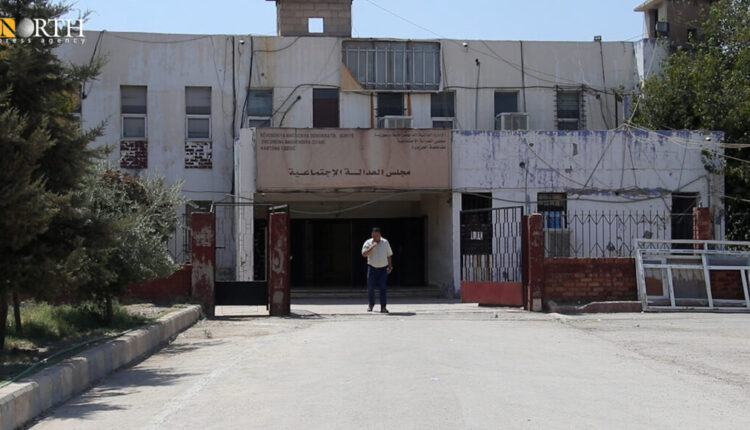
By Nalin Ali
QAMISHLI, Syria (North Press) – Lawyers in the city of Qamishli, northeastern Syria, agree that the new Social Contract needs to guarantee and ensure the basic rights of all communities in the region regardless of their religious and ethnic background.
They also stressed that the contract must guarantee the fair distribution of natural resources and sovereign rights in the areas of the Autonomous Administration of North and East of Syria (AANES), in addition to shaping the relationship between the AANES and the Syrian government.
The Social Contract, which acts as Northeast Syria’s constitution, is a set of theoretical and practical foundations, laws, and organizational rules which are established to determine the relationship between the administration and the people, and to clarify the rights and duties of individuals and officials within society.
The AANES drafted the first Social Contract when it was established in Hasakah, Kobani, and Afrin in 2014. Later, it was modified into the Charter of the Autonomous Administration in 2018 upon the declaration of AANES.
On July 15, 2021, a mini-committee of 30 members was formed to prepare a draft for the Social Contract to regulate the political, economic and social work of the AANES.
After the mini-committee finished its work, discussion sessions of the expanded committee began.
The expanded committee, responsible for restructuring the Social Contract, consists of 30 members representing the AANES, in addition to 30 members representing political parties in northern and eastern Syria.
Women’s unions and organizations are represented by 20 members, civil society organizations including unions and humanitarian organizations are represented by 30 members, 10 members represent youth institutions, and the remaining members consist of independent individuals in the region.
In the middle of 2021, the AANES announced its intention to revise the existing Social Contract as a proactive measure in preparation for local elections in the areas it governs.
Khaled Omar, a lawyer in Qamishli, told North Press, “The Social Contract should guarantee and ensure the basic rights of all citizens, regardless of their national and religious backgrounds.”
He also stressed the contract should include articles related to basic issues, such as “social justice, education, investing natural resources and sovereign rights of the AANES areas and how to shape the relationship with the central authority in Damascus.”
According to Shahin Lali, a lawyer in Qamishli, the Social Contract is a constitution for all components of the region including all ethnics and beliefs. Therefore, it is necessary ” to discuss all its articles thoroughly because this contract shapes the fate of all components of the region and therefore it must be put to a referendum.”
The new Social Contract must include “all political and social rights, principles of human rights and the economic system, taking into account the rights of all components,” Lali told North Press.
The lawyer stressed the need to speed up the approval of the new Social Contract “to transition to the second phase, which is the stage of national societal entitlements.”
Adnan Hassan, a lawyer in Qamishli, stressed the need for the Social Contract to include women’s inheritance issue. “We hope that the rights of women to inheritance would be included in the Social Contract.”
Initially, the AANES drafted the first Social Contract when it was established in Hasakah, Kobani, and Afrin in 2014. Later, it was modified into the Charter of the Autonomous Administration in 2018 upon the declaration of AANES.
The need for its amendment came amidst criticism directed at the contract that was implemented in 2014, as it overlooked several fundamental human rights principles, such as the prohibition of arbitrary detention, the right to prompt judicial review, and the right to legal counsel during criminal proceedings. Additionally, there are several essential observations within the preamble of the “Charter.”
